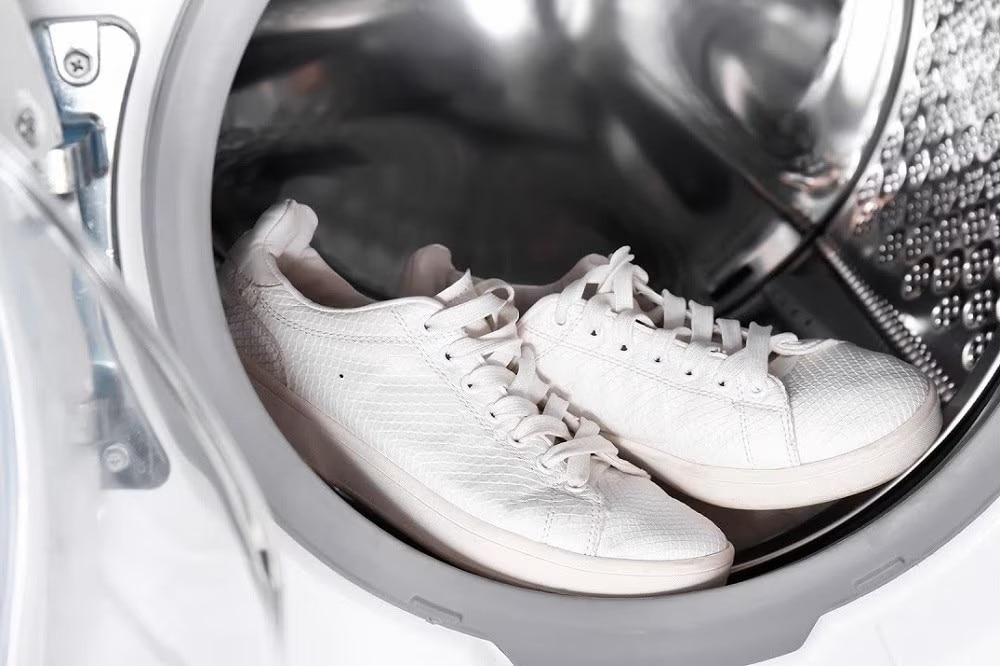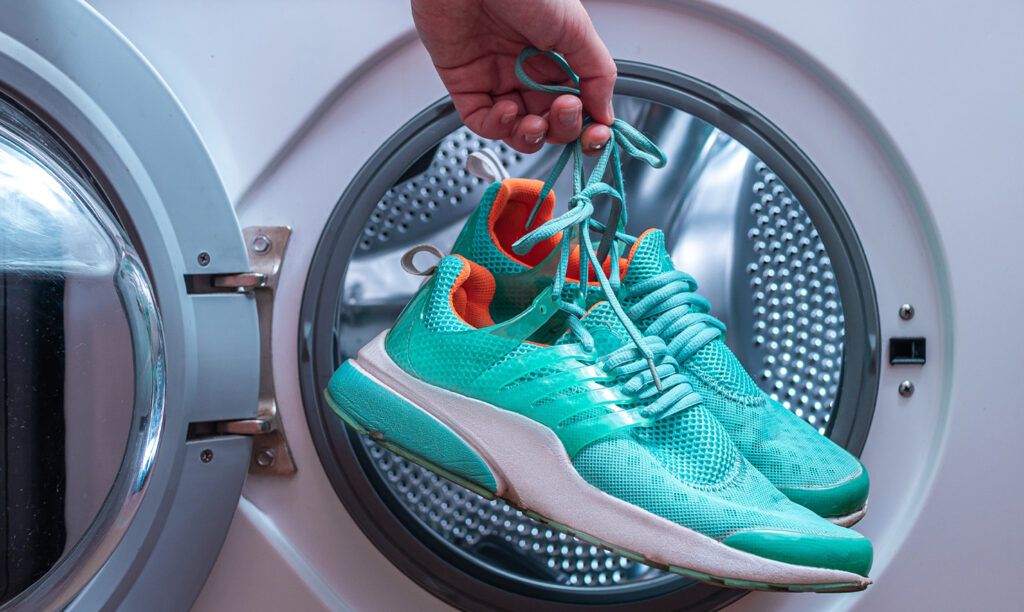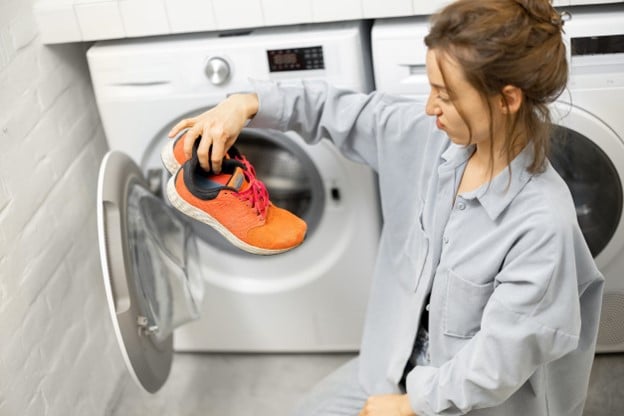Running shoes can take a beating. Whether you’re a dedicated athlete or just someone who enjoys a casual jog around the neighborhood, keeping your shoes in good shape is essential for both performance and style. One of the most frequently asked questions among footwear enthusiasts is: Can you wash running shoes in the washing machine? This article will guide you through the ins and outs of washing your beloved kicks, offering practical tips, real-world experiences, and expert insights.
Why Clean Your Running Shoes?
Cleaning your running shoes goes beyond aesthetics. Dirt and grime can affect the shoe’s material, impacting its durability and performance. A clean shoe is less likely to hold onto odors, which is a considerable plus for any runner. Let’s explore the main reasons why maintaining the cleanliness of your shoes is essential:
Durability
Running shoes are an investment, often ranging from $80 to $200. Proper care can extend their lifecycle, ultimately providing better value for your money. Running in dirty shoes, especially on muddy trails, can lead to material degradation.
Odor Control
After a long run, shoes can become a breeding ground for bacteria and fungi, which contribute to unpleasant odors. Regular cleaning can help to mitigate this issue.
Performance
Dirty shoes often lose traction, which can be dangerous when running on slick surfaces. Keeping your shoes clean ensures they perform optimally.

Can You Wash Running Shoes in the Washing Machine?
The simple answer is: it depends. While many people have successfully washed their running shoes in the washing machine, certain factors need to be considered. Let’s delve deeper:
Material Matters
Before tossing your shoes into the washing machine, it is crucial to check the materials they are made from. Shoes made of mesh, synthetic materials, and rubber are generally suitable for machine washing. However, leather, suede, or those with delicate embellishments may suffer damage. Always refer to the manufacturer’s care instructions.

Types of Running Shoe Materials
| Material | Machine Washable | Notes |
|---|---|---|
| Mesh | Yes | Durable but can lose some structural integrity over time. |
| Synthetic | Yes | Great choice for machine washing. Just air-dry. |
| Leather | No | May crack or lose shape. |
| Suede | No | Risk of damaging texture and color. |
Washing Machine Settings
If you’ve determined that your shoes can handle a ride in the washer, it’s time to select the right settings. Always opt for the gentle cycle to minimize agitation, and use cold water to prevent damage to the materials. Avoid using bleach or fabric softeners, as these can ruin the fabric and alter the shoes’ integrity.

Step-by-Step Guide to Washing Running Shoes in the Machine
Preparation
Proper preparation will ensure a successful wash. Here’s how to do it:
- Remove Insoles and Laces: Take out the insoles and laces to clean them separately. This allows for a more thorough wash.
- Pre-treat Stains: Use a soft brush or a cloth to pre-treat any visible stains using mild detergent.
- Use a Laundry Bag: Place your shoes in a mesh laundry bag to minimize movement inside the machine.
The Washing Process
After preparing your shoes, follow these steps:
- Load the Washer: Place the laundry bag in the washing machine with other laundry items like towels for balance.
- Select Settings: Set the machine to cold water and gentle cycle.
- Start Washing: Allow the machine to complete its cycle.

Aftercare
Once the wash is complete, here’s how to take care of your shoes:
- Air Dry: Never place your shoes in the dryer; it can warp them. Instead, stuff the shoes with newspaper to maintain their shape and let them air dry in a shaded area.
- Clean Insoles and Laces: Wash insoles and laces separately by hand or in the machine using the same gentle cycle.
Real-World Experiences: Success Stories and Cautionary Tales
As with any method, there are both success stories and cautionary tales surrounding machine washing running shoes. Below, we highlight some real-world experiences from running communities.

Success Stories
Many runners have shared success stories about machine washing their shoes. For instance, Sarah from Texas reported that washing her mesh running shoes revitalized them, removing stubborn odors and grime. “I was amazed at how clean they came out! They felt almost brand new,” she stated.
Cautionary Tales
However, there are also cautionary tales. John, an avid trail runner, attempted to wash his leather trail shoes in the machine and regretted it. “They came out shriveled and lost their shape. I had to buy a new pair!” he lamented.

Pros and Cons of Washing Running Shoes in the Washing Machine
Pros
- Effortless Cleaning: Machine washing is less labor-intensive than hand washing.
- Time-Saving: It saves time, allowing for simultaneous laundry tasks.
- Effective Odor Removal: A machine wash can help in effectively removing stubborn odors.
Cons
- Potential Damage: Risk of damaging shoes, especially those not suitable for machine washing.
- Loss of Shape: Shoes can lose their original shape if not dried properly.
- Not Ideal for All Shoes: Some materials, like leather and suede, are not machine-wash friendly.

Alternative Cleaning Methods
If machine washing isn’t the right choice for your shoes, consider these alternatives:
Hand Washing
Hand washing is a gentler method and is suitable for all types of materials. Use a soft brush, mild detergent, and cold water. It’s more labor-intensive but can preserve your shoes better.
Using Sneaker Cleaning Kits
There are various sneaker cleaning kits available in the market designed for different materials. These kits typically include brushes, cleaners, and microfiber cloths specifically tailored for footwear. Brands like Jason Markk and Reshoevn8r offer exceptional products for keeping your shoes pristine.

FAQs
1. Can all running shoes be washed in the washing machine?
Not all running shoes are suitable for machine washing. Always check the material and manufacturer’s care instructions.
2. Will machine washing my shoes void the warranty?
Some manufacturers may void the warranty if the shoes are not cleaned according to their instructions. Always check the warranty terms.
3. How often should I wash my running shoes?
It depends on frequency of use, but generally, washing them every 2-3 weeks is advisable, or when they start to look dirty.
4. Can I use bleach to clean my shoes?
No, bleach can damage the materials and coloring of running shoes. Use a mild detergent instead.
5. Should I wash my shoes after every run?
No, washing them after every run can wear them out faster. Clean them when necessary, based on the visible dirt or odor.
6. How can I prevent my shoes from smelling?
Make sure to dry them thoroughly after each run. Using baking soda can also help absorb odors.
7. Is it okay to machine wash my insoles?
Check the manufacturer’s instructions. Many insoles can be hand washed but may be damaged in a washing machine.
8. Can I put my shoes in the dryer?
No, using a dryer can warp and damage your shoes. Always air dry them.
9. What temperature should I wash my shoes at?
Always use cold water to avoid damaging the materials.
Conclusion
Washing running shoes in the washing machine can be a convenient option for keeping them clean, but it comes with both benefits and risks. By following the right steps and understanding your specific shoe’s materials, you can maintain the functionality and aesthetic appeal of your footwear. Always remember to consider alternatives if machine washing isn’t suitable. Happy running!
For more detailed information on shoe maintenance, you can refer to this comprehensive guide on footwear care from the American Podiatric Medical Association.